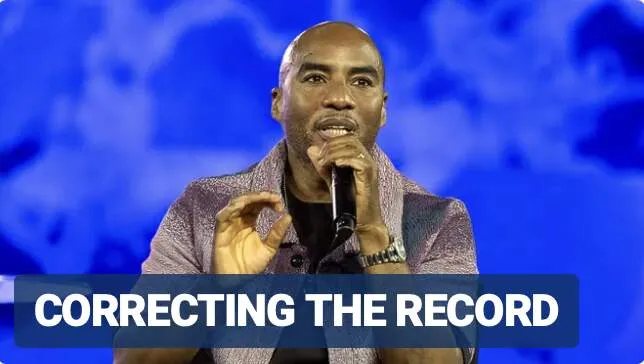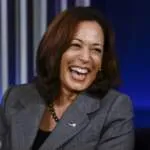(Fox News) Vice President Kamala Harris covered topics from reparations to the border in her high-profile interview with Charlamagne Tha God, whose program is popular with Black listeners, Tuesday.
The audio town hall in Detroit aired on iHeartRadio with the “Breakfast Club” radio show co-host for a full hour, with questions from listeners.
Recent polls have shown Harris losing support from Black men and her appearance was part of an attempt at reversing that trend.
Scripted Talking Points
“Some people say you have an inability to fearlessly say who you are and what you believe,” Charlamagne said. “What do you say to people who say you stay on talking points?”
“I would say, ‘You’re welcome,'” Harris answered. “I mean, listen, here’s the thing. I love having conversations, which is why I’m so happy to be with you this afternoon. And the reality is that there are certain things that must be repeated to ensure that I have everyone know what I stand for and the issues that I think are at stake in this election. And so, it requires repetition.”
“You know, some people say that until someone has heard the same thing at least three times, it just doesn’t stay with you,” Harris continued. “So repetition is important. And for that reason, yes, at my rallies I say the same thing when I go to Detroit as I do in Philly, as I do wherever I am, to make sure that people hear and receive what I think are some of the most critical issues that are at stake in this election.”
Marijuana Charges
Later on, Charlamagne brought up Harris’ record as the San Francisco District Attorney, calling reports of her imprisoning thousands of Black men on drug charges “misinformation.”
“One of the biggest pieces of misinformation, one of the biggest allegations against you is that you targeted and locked up thousands of Black men in San Francisco,” Charlamagne said. “Some say you did it to boost your career. Some say you did it out of pure hate for Black men. Please tell us the facts.”
Though Harris has since supported decriminalizing marijuana use, as district attorney, she oversaw nearly 2000 convictions on marijuana-related charges.






